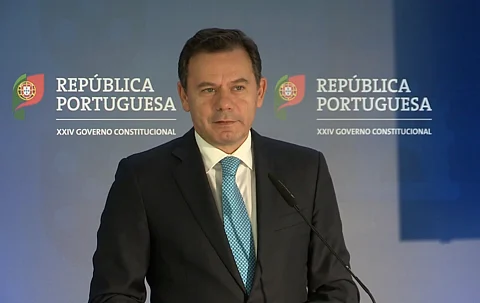

Portugal’s center-right government, led by Prime Minister Luís Montenegro, was ousted in a parliamentary vote of confidence on Tuesday, setting the stage for the country’s third general election in three years. Lawmakers voted 142 to 88 against the government, with no abstentions, marking a significant blow to Montenegro’s Democratic Alliance coalition, which has governed as a minority since March 2024.
President Marcelo Rebelo de Sousa, while not legally required to dissolve parliament, had previously indicated he would do so if the government lost the confidence vote. Snap elections are now expected to take place in May.
A Government Under Scrutiny
The confidence motion was initiated by the government itself after the opposition Socialist Party (PS) announced plans to launch a parliamentary inquiry into Montenegro’s business dealings. The controversy centers on allegations of a conflict of interest involving Spinumviva, a data protection consultancy founded by Montenegro in 2021 before he entered active politics. In 2022, Montenegro transferred ownership of the company to his wife and sons. However, the firm continued to receive significant payments from clients, including companies with government contracts.
Montenegro, 52, who has been in office for less than a year, denied any wrongdoing, stating, “I have committed no crime.” He accused the opposition of attempting to destabilize his government, which had recently passed a budget and appeared to be on stable footing. “We tried everything right up to the last minute to avoid snap elections,” Montenegro said after the vote.
The opposition, however, argued that the prime minister had indirectly enriched himself while in office. The Socialist Party and the far-right Chega party both voted to bring down the government, highlighting the fragility of Montenegro’s minority administration.
Rise of the Far-Right and Political Uncertainty
The upcoming election could see further gains for Chega, which became Portugal’s third-largest political force in the March 2024 legislative elections, securing 50 seats and 18% of the popular vote. The party has capitalized on public frustration with corruption and political instability, particularly following the resignation of former Socialist Prime Minister António Costa in November 2023 amid an influence-peddling investigation. Costa is now president of the European Council.
However, Chega has faced its own challenges in recent weeks, with three of its MPs embroiled in scandals, including one accused of stealing suitcases at Lisbon airport. Despite these setbacks, the party remains well-positioned to exploit voter discontent.
The timing of the snap election is far from ideal, with major parties reluctant to return to the polls so soon after the last vote. Voter fatigue is a significant concern, as the current government has been in power for less than a year. Additionally, the geopolitical climate adds further complexity, with Portugal navigating a challenging international landscape.
As the country prepares for another election, the political landscape remains deeply fragmented, raising questions about the stability and direction of Portugal’s government in the months ahead.